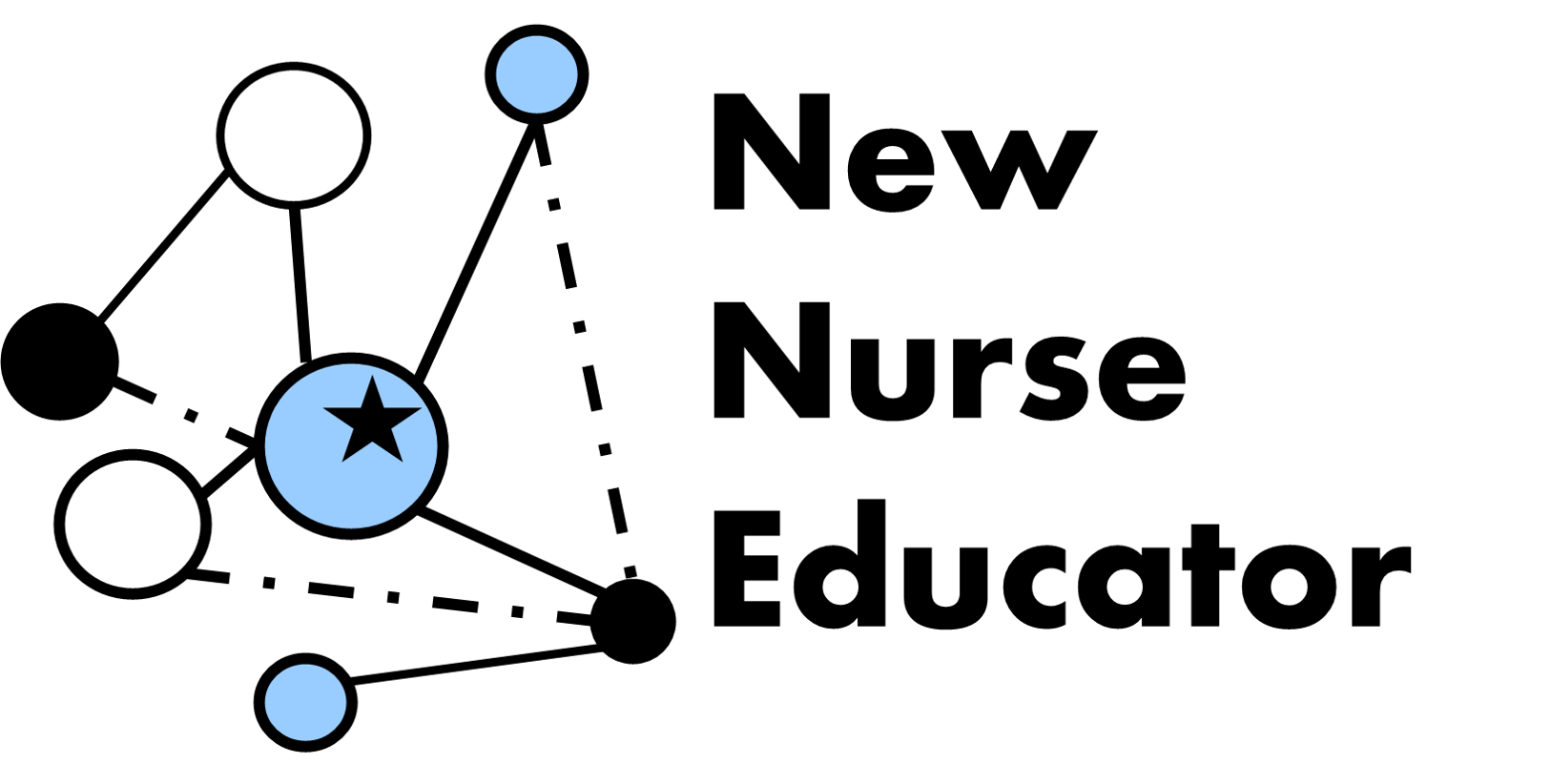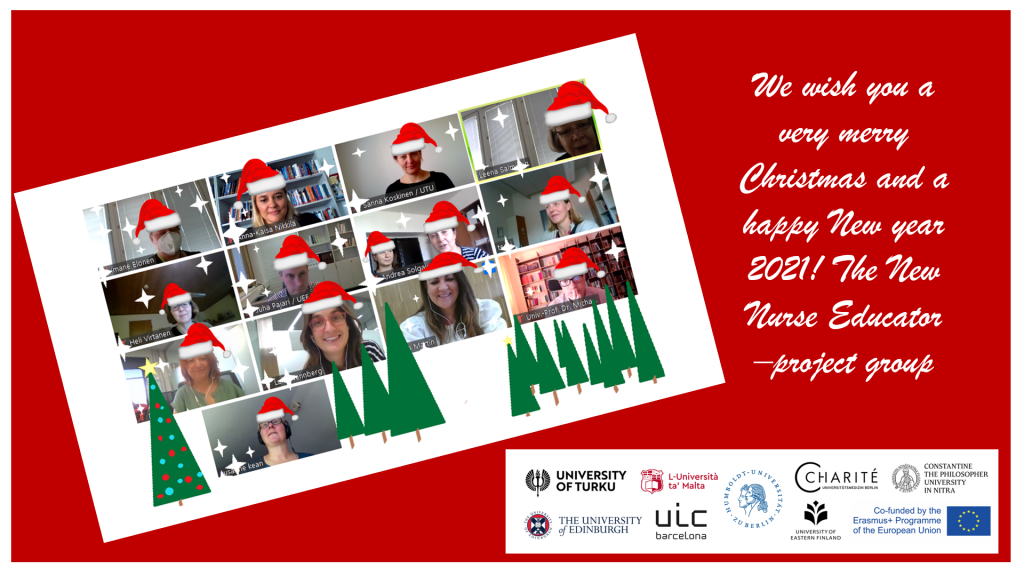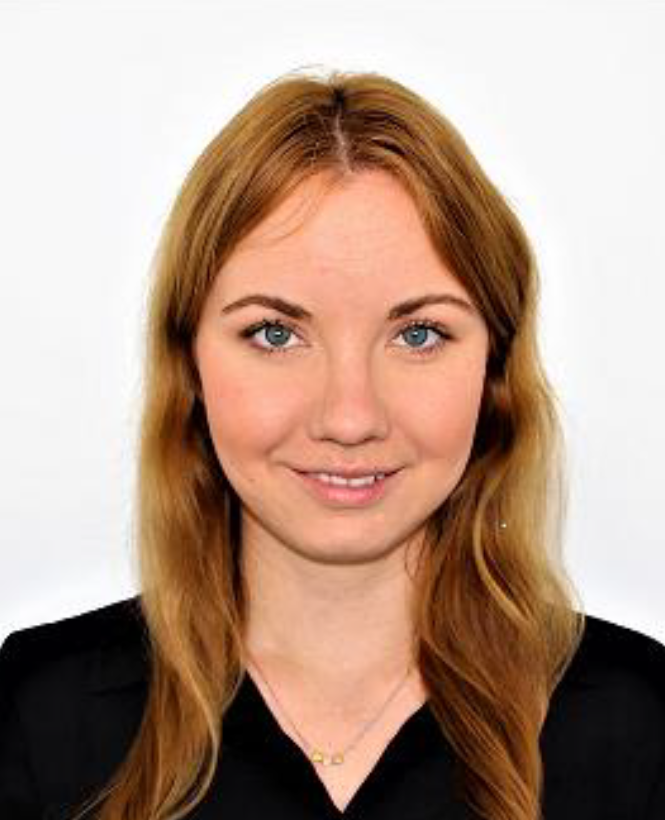
Author of the blog is Simone Campos Silva from Charité – Universitätsmedizin Berlin
Germany is located in central Europe and has 83.1 million inhabitants, which means that it is the most populated member state of the European Union (Destatis, 2021). Germany is a federal republic with 16 federal states; each state is partly autonomous regarding its internal organisation. This independence applies, for example, to education and health.
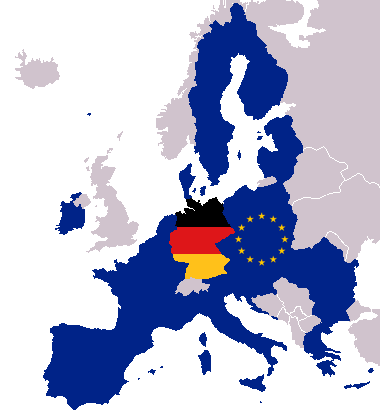
Nurse Education
With the new Nurse Professions Act of January 2020, there are now two ways of becoming a nurse in Germany (PflBG, 2017). One option is completing vocational training at vocational schools – this is equivalent to level 4 in the European Qualification Framework (EQF, 2017; Lehmann et al., 2019). This vocational training is the predominant way of educating nurses in Germany. There are approximately 1.200 vocational schools (BMFSFJ, 2021; Destatis, 2021). The vocational training takes up to three years and the nursing students receive a monthly salary during the training period, which increases every year (BIBB, 2020; BMFSFJ, 2021). The Nursing Professions Act introduced a new job title Pflegefachmann/ Pflegefachfrau (= nurse). This is a generalist education that combines general nursing, geriatric nursing and paediatric nursing. Still, nursing students have the possibility to specialise in geriatric nursing or paediatric nursing during their training (BIBB, 2020). In order to start vocational nursing training, students are required to have 10 years general education, meet certain health requirements and have a clean criminal record.
The second option to become a nurse in Germany is to go to university or university of applied sciences. This education is equivalent to level 6 in the European Qualification Framework (EQF, 2017; Lehmann et al., 2019). Depending on the source, there are between 30 or more than 40 universities offering nurse education, which lasts between 6-8 semesters (DBfK, 2016; BMFSFJ, 2021). When studying to become a nurse at a university or university of applied sciences, salaries are not regulated (BIBB, 2020). Nursing students receive the academic degree Bachelor of Science in addition to the job title Pflegefachmann/ Pflegefachfrau. In order to study at a university or university of applied sciences, nursing students are required to have 12 years general education.
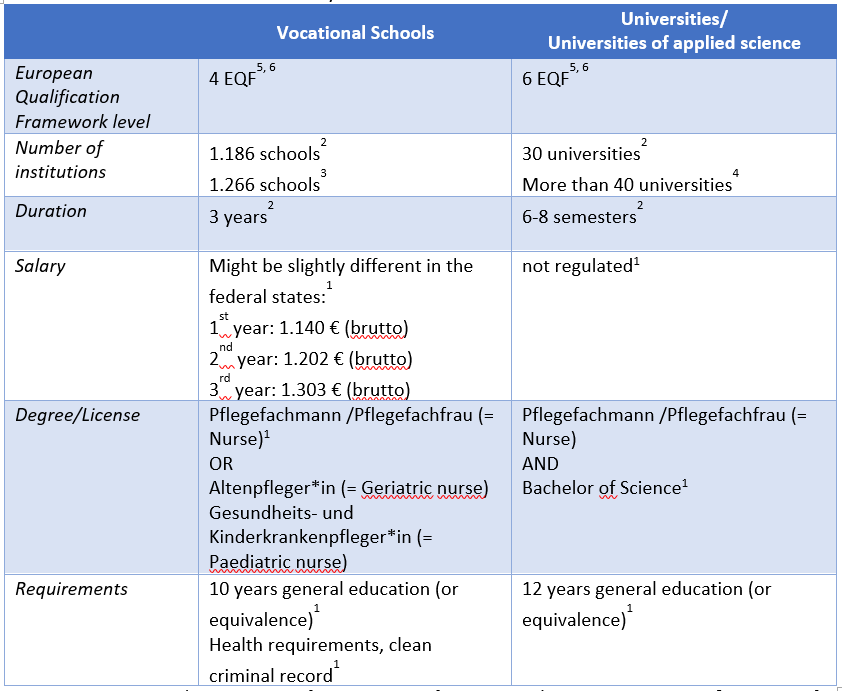
Nurse Educator Education:
There is a very heterogeneous picture with regard to the education of nurse educators within Germany. In general, a distinction can be made between three different educational paths: Further education programs (EQF 4/5), bachelor programs (EQF 6) and master programs (EQF 7). Further education programs almost do not exist anymore but there are still numerous nurse educators teaching in vocational schools, who have been trained through these further education programs. In the last years, bachelor and master degree programs have emerged to train nurse educators. The Nursing Professions Act of 2020 specifies that a reasonable share of nurse educators must be trained at master level (PflBG, 2017). What exactly is meant by ‘reasonable share‘ is not defined.
In Germany, there are formal educational programs for nurse educators. According to the requirements of the Nursing Professions Act, these programs take place at master level at universities or universities of applied sciences – which is equivalent to level 7 in the European Qualification Framework (PflBG, 2017; EQF, 2017). Depending on the program, these master programs comprise between 60-120 ECTS and can be studied part-time or full-time. Funding is provided by the state. However, at private universities and universities of applied sciences tuition fees may apply.
References:
Bundesinstitut für Berufsbildung (BIBB) (Federal Institute for Vocational Education and Training) (2020): Pflegeausbildung aktuell. Modern, vielfältig und zukunftsfähig. URL: https://www.bmfsfj.de/resource/blob/156748/8ac8ea7bd4168380f81f658f02326621/pflegeausbildung-aktuell-broschuere-bibb-data.pdf (15.11.2021)
Bundesministerium für Familie, Senioren, Frauen und Jugend (BMFSFJ) (Federal Ministry for Family Affairs, Senior Citizens, Women and Youth) (2021): Pflegeausbildung. Alles zur Ausbildung. URL: https://www.pflegeausbildung.net/ausbildungsinteressierte.html (15.11.2021)
Destatis Statistisches Bundesamt (2021): Statistik nach der Pflegeberufe-Ausbildungsfinanzierungsverordnung – 2020. URL: https://www.destatis.de/DE/Themen/Gesellschaft-Umwelt/Bildung-Forschung-Kultur/Berufliche-Bildung/Publikationen/Downloads-Berufliche-Bildung/pflegeberufe-ausbildungsfinanzierung-vo-5212401207005.html (15.11.2021)
Deutscher Berufsverband für Pflegeberufe (DBfK) (German Nurses Association) (2016): Position des DBfK zum Einsatz von primärqualifizierten Bachelor of Nursing in der Pflegepraxis. URL: https://www.dbfk.de/media/docs/download/DBfK-Positionen/Position-BSN-Einsatz-in-Praxis_2016-07-26final.pdf (15.11.2021)
European Qualifications Framework (EQF) (2017): The European Qualifications Framework for lifelong learning and repealing the recommendation of the European Parliament and of the Council of 23 April 2008 on the establishment of the European Qualifications Framework for lifelong learning. URL: https://eur-lex.europa.eu/legal-content/EN/TXT/HTML/?uri=CELEX:32017H0615(01)&from=EN (15.11.2021)
Fachkommission nach Pflegeberufegesetz (2019): Rahmenpläne der Fachkommission nach § 53 PflBG. 2. überarbeitete Auflage. URL: https://www.bibb.de/dienst/veroeffentlichungen/de/publication/show/16560 (09.12.2021)
Lehmann Y, Schaepe C, Wulff I, Ewers M (2019): Pflege in anderen Ländern: Vom Ausland lernen?. Heidelberg: medhochzwei.
Pflegeberufegesetz (Nurse Professions Act) (PflBG) (2017): Gesetz über die Pflegeberufe. URL: https://www.gesetze-im-internet.de/pflbg/PflBG.pdf (20.12.2021)
Fig. 1: Map of Europe. Johannes Ries, modified by NordNordWest, CC BY 2.0 https://creativecommons.org/licenses/by/2.0, via Wikimedia Commons
